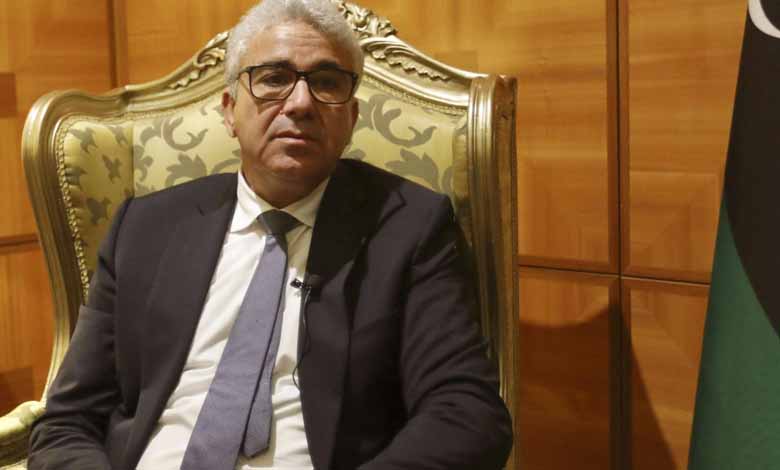Two-headed government… The dispute over the presidency deepens the Libyan crisis and increases the fears of the people

Libya’s political track remains stuck in a cycle of crisis, and months ago Libyans drew a path out of the crisis. A unity government was formed, and elections were scheduled before preparations faltered, which incited further division.
The decision of the Libyan parliament weeks ago to choose Fathi Bashagha as the new prime minister has led to an escalation of disputes and conflicts over the division of power as Abdul Hamid Dbeibeh, the current prime minister, clings to his position.
Dbeibeh believes that the decision to appoint another president is an act of division, and it seems that this division is further entrenched in the social reservoir from which both Dbeibeh and Bashagha derive their political weight, which is reflected in the emergence of armed groups that all Libyans fear.
The birth of the new government
Weeks after the parliament tasked Bashagha with forming a government, its features have not yet been significant. The country is still waiting for parliamentary consultations on the nomination of prospective members of the government, which many believe will constrain internal balances that will generate a government similar to the previous one.
Political researcher Nasser Hawari said Bashagha faces a major challenge and could form a government of technocrats or an expanded government of 27 portfolios, which observers see as a quota trap similar to other governments that may be linked to corruption cases.
Dbeibeh hold the chair
The delay in the birth of the new government was accompanied by sharp criticism of the parties involved in the Libyan crisis. The head of the current national unity government, Abdul Hamid Dbeibeh, accused the political class, led by the House of Representatives and the Supreme Council of the State, of taking the country hostage to partisan interests.
While Bashagha is preparing for his new government, Dbeibeh is committed to the legitimacy of his government. He announced a plan to organize parliamentary elections before the end of June and to postpone the presidential elections until later, confirming that he will not hand over power except to an elected government.
Libyan fears grow
This political instability has fueled Libyans’ fears of paying a price in security, and they are already paying a high price in the economy while dreaming of political stability that will establish a secure and prosperous Libya.
Mohammed Mahfouz, a political and legal researcher, said the existence of two governments is unacceptable, but the political situation requires a fait accompli, especially with the continuing dispute between the parties that prevents understanding in one government.
Mahfouz added: In Libya, several bodies are the cause of the crisis. If the legislative authority, the parliament and the Council of State, are the main parties in this impasse…He wondered: Is it logical to form a government now whose term expires next June?
What’s the solution?
Mahfouz believes that the solution is simple. He said the solution lies in removing Dbeibeh and assigning one of his deputies to head the government, on the understanding that its task will be to organize the elections through consensus, consultation with all parties, or resorting to political dialog to reach an elected government.
He said there is no talk in the Libyan street about specific individuals, as everyone wants to go to the ballot box, as there is no holding of Dbeibeh or Bashagha, as the only goal is elections. It will not happen under the current weak roadmap.












